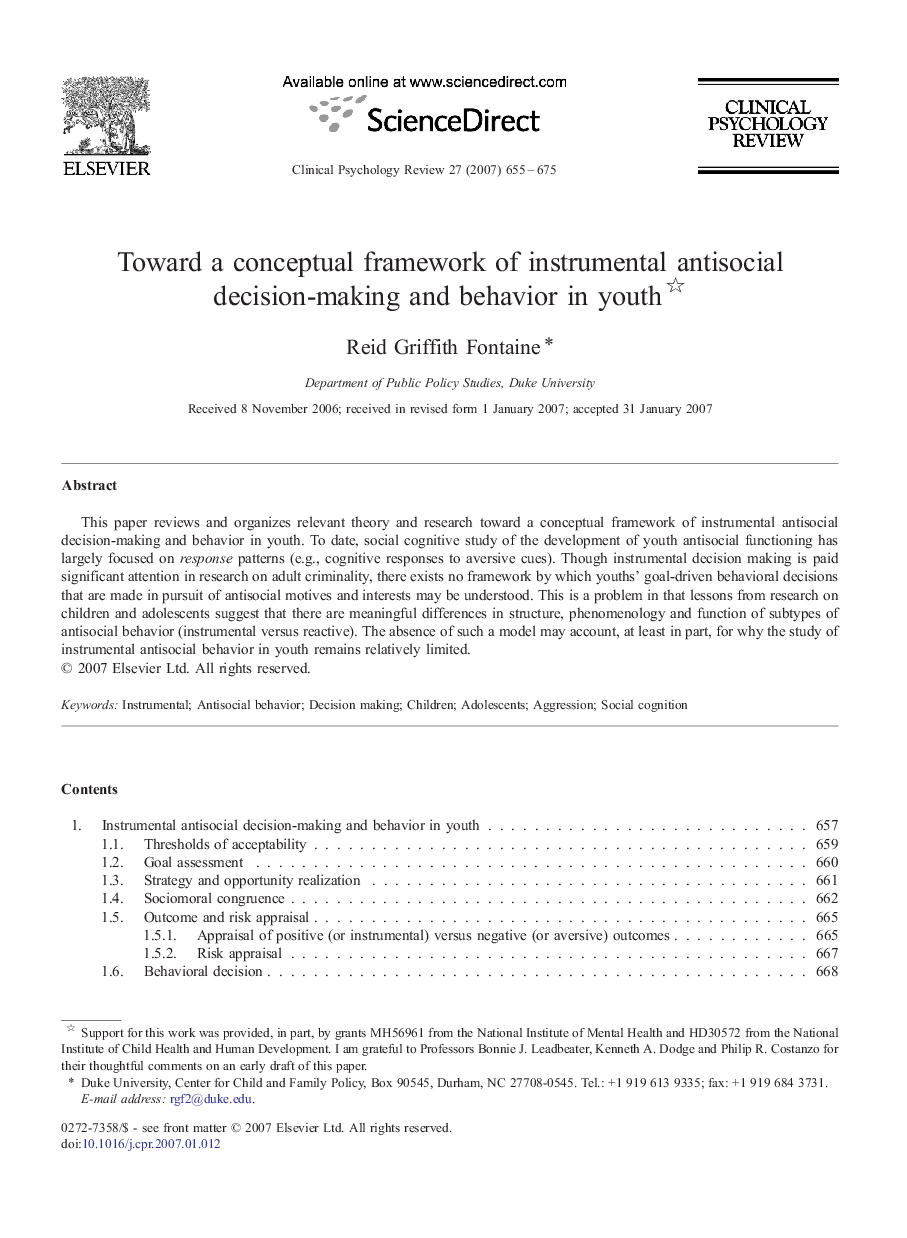| Article ID | Journal | Published Year | Pages | File Type |
|---|---|---|---|---|
| 904188 | Clinical Psychology Review | 2007 | 21 Pages |
This paper reviews and organizes relevant theory and research toward a conceptual framework of instrumental antisocial decision-making and behavior in youth. To date, social cognitive study of the development of youth antisocial functioning has largely focused on response patterns (e.g., cognitive responses to aversive cues). Though instrumental decision making is paid significant attention in research on adult criminality, there exists no framework by which youths' goal-driven behavioral decisions that are made in pursuit of antisocial motives and interests may be understood. This is a problem in that lessons from research on children and adolescents suggest that there are meaningful differences in structure, phenomenology and function of subtypes of antisocial behavior (instrumental versus reactive). The absence of such a model may account, at least in part, for why the study of instrumental antisocial behavior in youth remains relatively limited.
